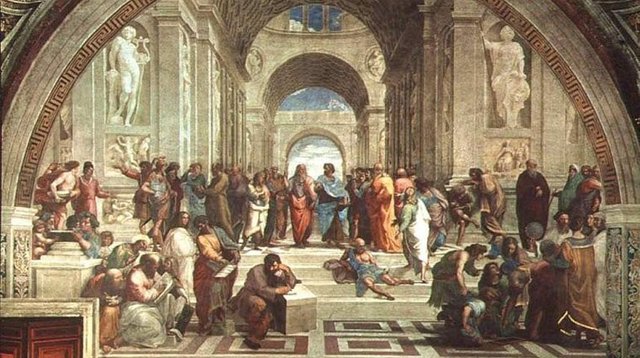Ancient philosophy. The Teaching of God in the Philosophy of Aristotle
In his studies, the great thinker of Stagira covers almost all accessible knowledge industries in antiquity. His philosophical heritage is the encyclopedia of scientific thought in antiquity. His activity as an ingenious philosopher and an in-depth thinker is epochal. For him, Goethe writes: "Aristotle is like an architect-builder. He realizes that only a single time lives in this reality and therefore seeks to act here and build ... It encompasses a vast circle of its building, gathers materials from all sides, arranges them, raises them in layers in the form of the pyramid, and is elevated to the height, while Plato is directed toward the heavens like a obelisk as a peak of a high flame.
Goethe's characterization not only mentions the difference in the philosophical approach to the reality between Plato and Aristotle but at the same time reveals the main focus of the two thinkers - the aspiration to the First Cause of Everything Existing, to the Ideal Primordial of the World, to God. Indeed, Plato seeks knowledge, truth, and beauty in the supernatural world. On the ideas Plato opposes the world of phenomena in which the reflection of the truth is false, ghostly and fragmented. In contrast, Aristotle recognizes the reality of the world of phenomena. " Despite the existing methodological differences, however, both thinkers seek to reveal and express in concepts the true nature of things and phenomena, to create in the way of natural reason a fuller, more exalted and more truthful doctrine of the most profoundly impotent reality, of Deity.
As the "knowledge of the truth", as "the science of the purposes and the good, of the first principles, principles and essences", as "the doctrine of the divine" its so-called "first philosophy," as opposed to "the second philosophy" / Aristotle calls "godself". The purpose of the "first philosophy," later called metaphysics, is the knowledge of the existing, of its eternal, true, and unchangeable nature. Knowing the essence of the world through the forms of thinking in turn leads to knowledge of God. Metaphysics implements, in a theoretical-cognitive plan, the ascendancy from the earthly world to God. In the critical analysis of the concepts advocated by the previous thinkers in ancient Greek philosophy / Metaphysics, Ch. 3-4 /, Aristotle finds that there are four types of reason or beginning to explain the world:
a) a material reason, which is the material substratum of every change from which the material things arise and in which it develops. (This is, for example, the air of Anaximeum or the fire at Heraclitus);
b) a cause that is the beginning of the movement or the so-called initial impulse in the cosmogonic process (as for example, the nois at Anaxagor);
c/ the ultimate goal of any origin and movement, that is, the reason for the action or the final moment determining the main lines of development (for example, the idea of the Plato swamp);
d / "form", giving a certain kind of the single being.

To listen to the audio version of this article click on the play image.

Brought to you by @tts. If you find it useful please consider upvoting this reply.